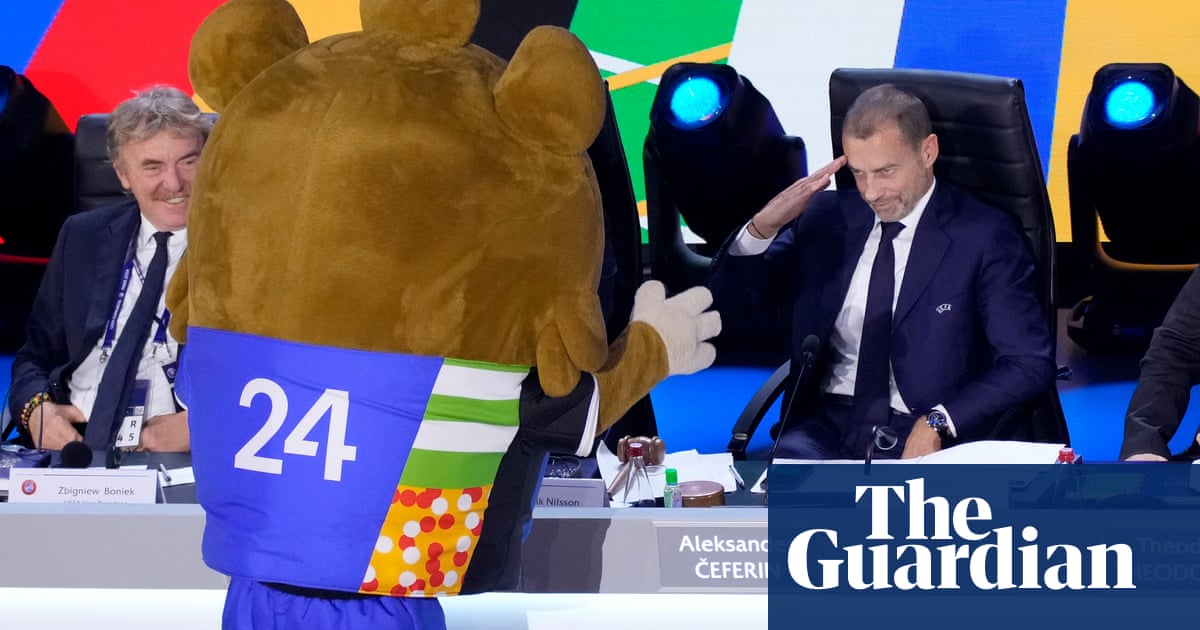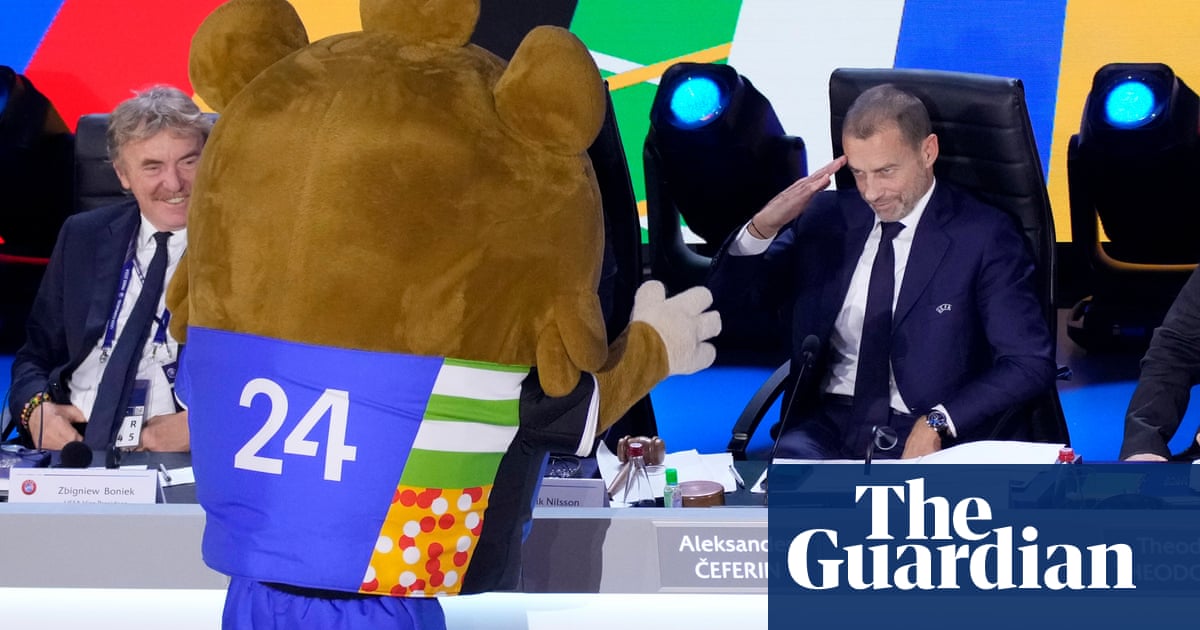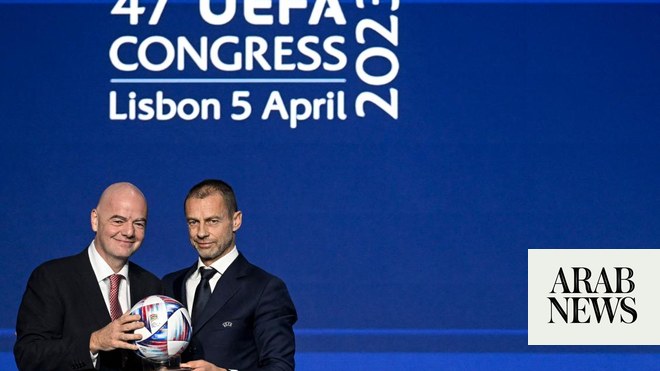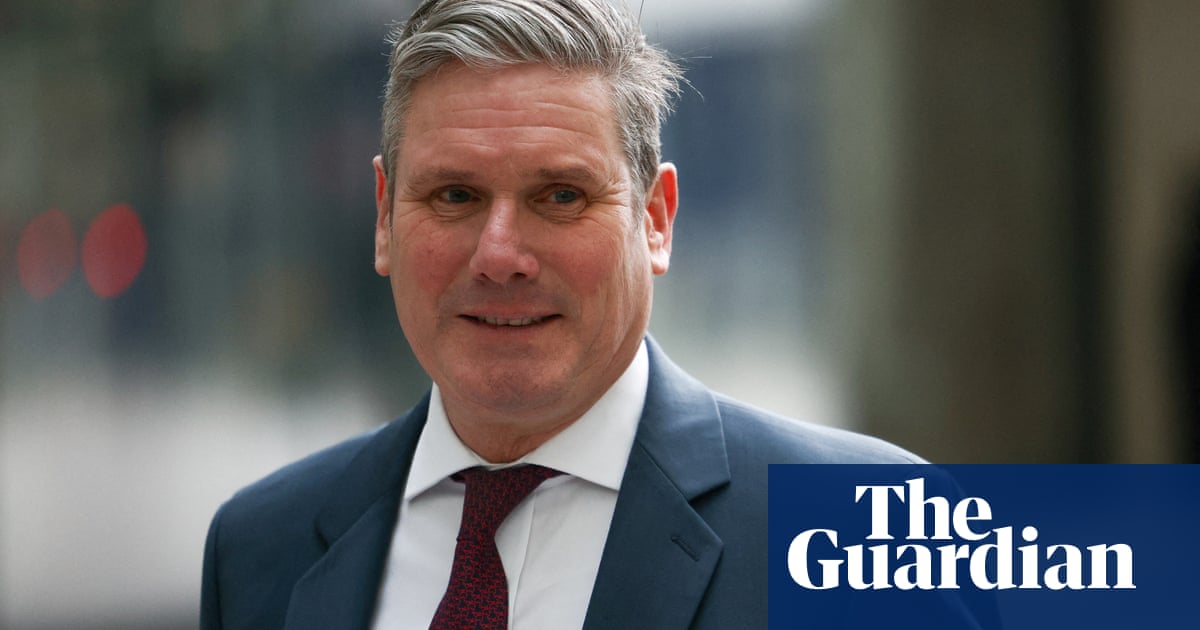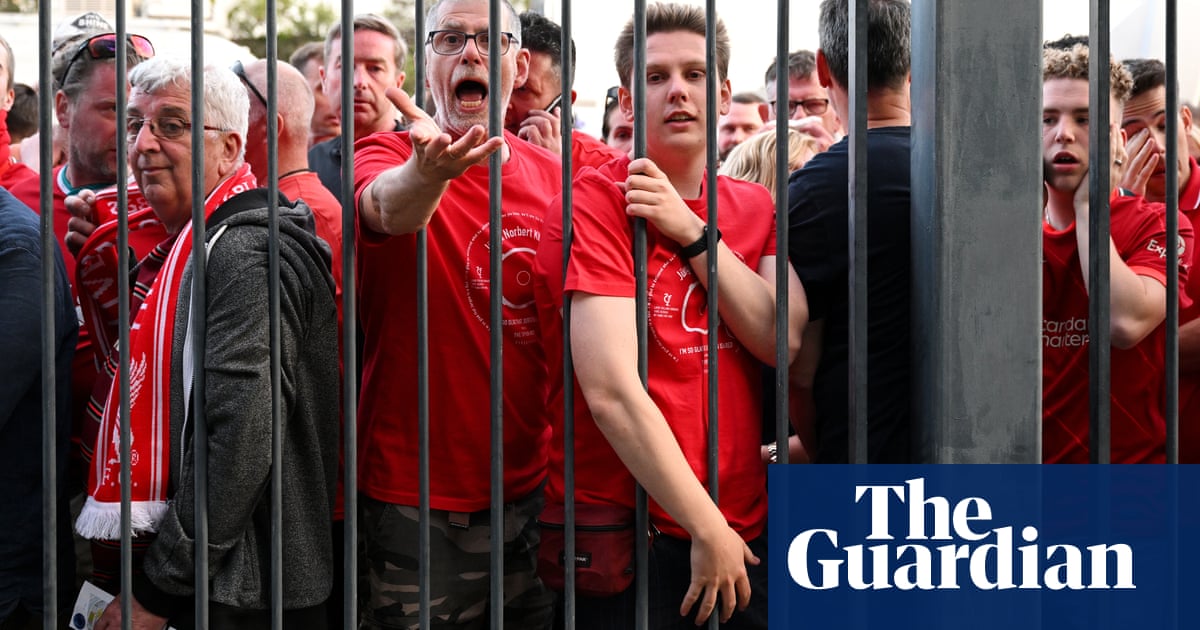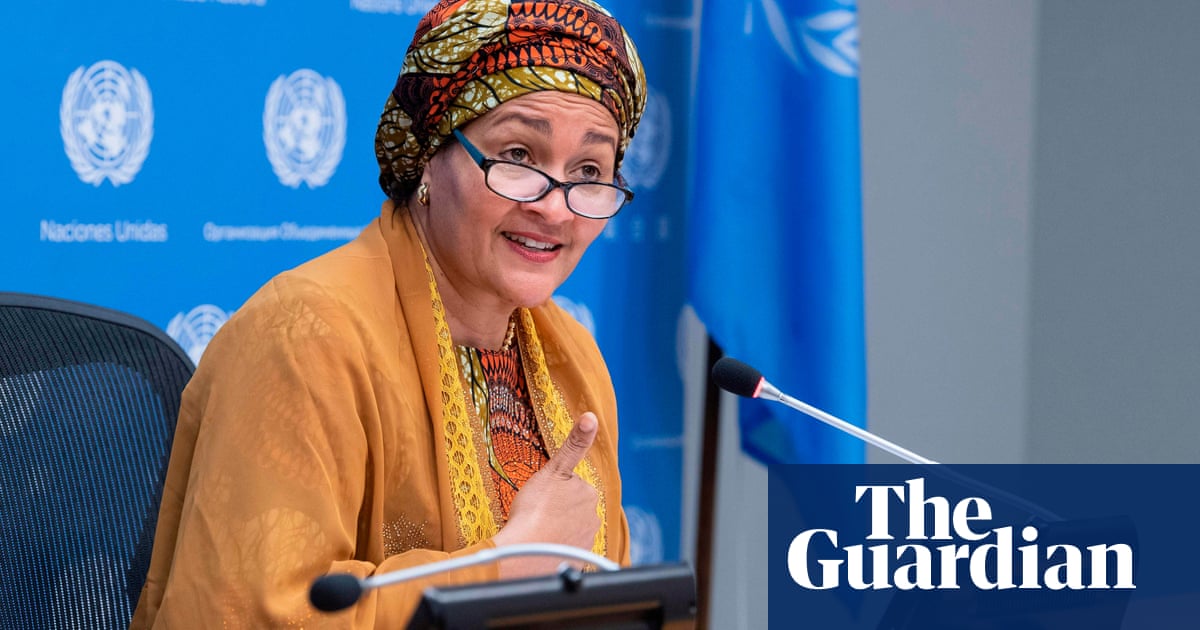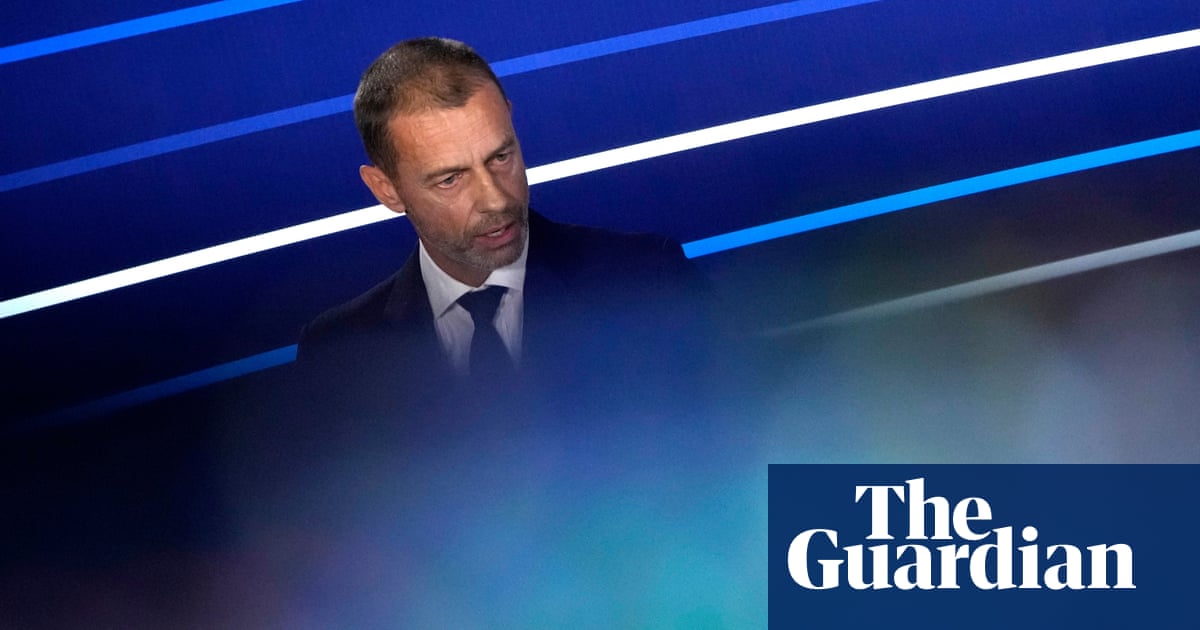
Uefa’s president, Aleksander Ceferin, has held talks with a number of European federations about reversing his pledge to step down in 2027. Ceferin announced at the Uefa Congress in February that he would not seek re-election at the end of his current term, but the Guardian has learned that he is being encouraged by several smaller federations to stand again.
Ceferin has yet to give any indication of his intentions, but Uefa insiders have said there are suspicions in Nyon that the Slovenian lawyer could be persuaded to stand again if a suitable successor fails to emerge. No candidates have even privately put themselves forward to replace Ceferin since his surprise announcement. The president of the Romanian Football Federation, Razvan Burleanu, has ruled himself out.
About 20 medium-sized Uefa members are understood to have pledged support for Ceferin, including Slovenia, Croatia, Montenegro and Albania. Larger countries in the Mediterranean such as Turkey and Greece also appear to be supportive of Ceferin extending a reign which began when he replaced Michel Platini in 2016, as are the minnows San Marino, Andorra and the Faroe Islands.
In addition to personal relationships, Ceferin’s appeal to these countries stems largely from their belief that he has protected their interests from being overlooked amid the financial power of the bigger European countries and their clubs. The 56-year-old has delivered for Europe’s smaller nations by adding four extra teams to the Champions League group stage next season, creating an expanded Europa Conference League and increasing redistribution of central funds to smaller countries and clubs.
A move by Ceferin to stand for election in 2027 would present political problems for the Football Association, which strongly supports governance rules restricting officers to three terms. A diplomatic row developed at the draw for the European Championship in Zurich last December when it emerged that Ceferin wanted to alter the Uefa statutes to ensure that his first year in office after succeeding Platini would not count towards the three-term limit, enabling him to stay in post until 2031 if re-elected.
The former Manchester United chief executive David Gill led the opposition in his role as the FA’s representative on Uefa’s executive committee at the time. The following month the former Milan midfielder Zvonimir Boban resigned as Uefa’s technical director in protest at what he described as a move “beyond comprehension”.
The FA was the only national association to vote against the rule change at February’s congress, with its chief executive, Mark Bullingham, holding a red card in the air in a symbolic show of dissent. Ceferin announced he would not stand for re-election minutes after winning the vote that enabled him to. “I decided six months ago that I would not run any more,” Ceferin said. “The reason is that after some time every organisation needs fresh blood, but mainly because I was away from my family for seven years now. I intentionally didn’t want to disclose my thoughts before, because firstly, I wanted to see the real face of some people and I saw it.”
Ceferin was elected as Uefa’s president on a reforming platform after Platini was banned from football for receiving irregular payments, leading to disappointment in some quarters at the manner in which he has centralised power in Nyon. He has enjoyed some undoubted successes, however, in growing Uefa’s revenues to an average of £4.2bn a season in the current four-year cycle, increasing solidarity payments made to Europe’s smaller clubs and helping defeat a European Super League plan led by Real Madrid, Barcelona and Juventus.
Uefa declined to comment.




